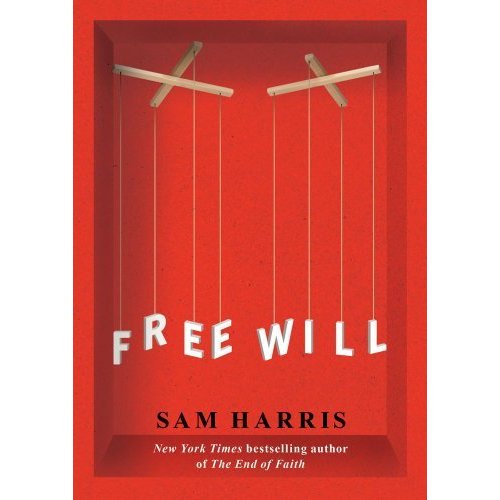
Free will has long been an issue on my mind. Although I am not into psychology or neuroscience I approached it in a logical/abstract way. It became apparent to me that there is no such thing as ‘free will’. The manifestations of our thoughts, our actions, which we tend to base upon free will, seem to me to be the result of our genetic composition, our culture and the current conditions of the universe. Like in chaotic dymanics we seem to be so dependent and sensitive to initial conditions and on ‘butterflies’ that fly around (and produce butterfly effects ;-)) that there seem to be no room for any whatsoever and however defined free will. But, again as in chaotic systems, the ‘determinism’ imposed by removing free will is not equivalent to ‘predictability’. Probably this lack of predictability is what makes us feel like acting in free will.
Recently I came across a book named ‘Free Will’ by Sam Harris. Harris has a degree in philosophy from Stanford University and a PhD in neuroscience from UCLA. In this book, Harris claims that
Free will is an illusion. Our wills are simply not of our own making. Thoughts and intentions emerge from background causes of which we are unaware and over which we exert no conscious control…
The popular conception of free will seems to rest on two assumptions: (1) that each of us could have behaved differently that we did in the past, and (2) that we are the conscious source of most of our thoughts and actions in the present.
Harris tries to prove these assumptions to be false in his book.
Specific experiments conducted using EEGs and fMRIs proved that a decision in the brain is being taken milliseconds to seconds before the decision is expressed by a person or even the person becomes aware of it in the first place!
As Harris states,
One fact now seems indisputable: Some moments before you are aware of what you will do next – a time in which you subjectively appear to have complete freedom to behave however you please – your brain has already determined what you will do. You then become conscious of the ‘decision’ and believe that you are in the process of making it.
To the compatibilists, who claim (I oversimplify) that we are everything that is going on in our bodies, Harris responds like this:
The are more bacteria in your body than there are human cells. In fact, 90% of the cells in your body are microbes like E coli (and 99% of the functional genes in your body belongs to them). Many of these organisms perform necessary functions-they are ‘you’ in a wider sense. Do you feel identical to them? If they misbehave, are you morally responsible?
He states that:
Combatibilism amounts to nothing more that an assertion of the following creed: A puppet is free as long as he loves his strings
Pondering even deeper, Harris concludes that
The illusion of free will is itself an illusion.

